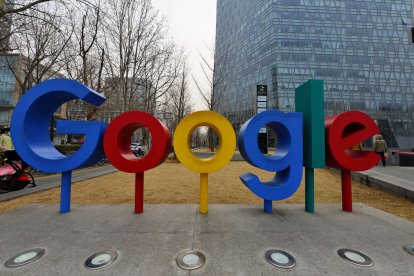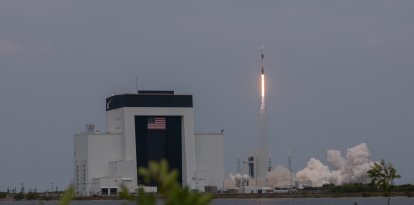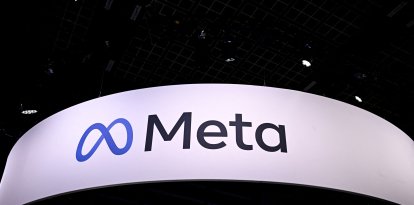Small nuclear power plants: Google's new strategy for powering AI
Unlike conventional nuclear plants, these more compact reactors can be built faster and at a lower cost.

Google logo in front of one of its headquarters.
On Monday, Google announced its backing for the construction of seven small nuclear reactors in the United States, in an unprecedented energy deal. In partnership with Kairos Power, the project seeks to meet the growing demand for electricity the company needs to power its operations in areas such as artificial intelligence (AI).
A breakthrough in modular nuclear power
This agreement is the first of its kind that would support the commercial construction of small modular nuclear reactors in the United States. Unlike conventional nuclear plants, these more compact reactors can be built faster and at a lower cost, which many consider the future of nuclear power. Kairos Power's project includes the construction of one 50-megawatt reactor and three additional plants with two 75-megawatt reactors each, for a total capacity of 500 megawatts, enough to power a medium-sized city or AI data center.
"The end goal here is 24/7, carbon-free energy. We feel like in order to meet goals around round-the-clock clean energy, you’re going to need to have technologies that complement wind and solar and lithium-ion storage," stated Michael Terrell, senior director of energy and climate at Google.
The growing link between the nuclear industry and technology.
Demand for energy in the United States has increased, largely driven by the expansion of data centers for artificial intelligence and other advanced technologies. This growth has led technology companies to explore sustainable energy sources to power their operations. A recent example is the agreement between Constellation Energy and Microsoft to reactivate a reactor at Three Mile Island, while Amazon has opted to acquire a data center at a nuclear plant in Pennsylvania.
The Google/Kairos Power deal addresses the uncertainties surrounding small nuclear reactors, especially in terms of economic viability and demand. The question of who would be willing to fund such a unique project and pay for the energy produced now has an answer: Google. With its backing, the possibility of long-term cost reductions opens up, as repeated construction of these reactors in series could prove to be much more efficient than traditional nuclear plants, which are designed and built individually.
Innovative technology and regulatory challenges
Kairos Power has an innovative design that uses molten fluoride salts as a coolant, instead of water as in traditional reactors. This design is safer and more efficient, but will have to navigate complex approval processes from the U.S. Nuclear Regulatory Commission. The company already has authorization to build a demonstration reactor in Tennessee, which could begin operating in 2027.
Although the site where the Google reactors will be built has not been disclosed, the project could represent a new opportunity for nuclear power in the United States, a sector that has been hurt by high costs and extended construction times for large plants.
Energy's future in the hands of technology
Nearly 20% of U.S. energy comes from nuclear sources, but new projects have declined in recent decades. Google, which has been investing in renewables since 2010, is now looking to apply its influence in the nuclear industry to reduce costs and ensure a steady source of energy for its technology operations.
However, at least in the short term, analysts expect that other sources such as natural gas will remain essential to meet the country's growing energy demand.
RECOMMENDATION





















